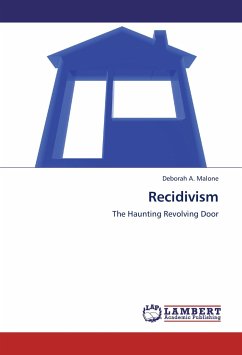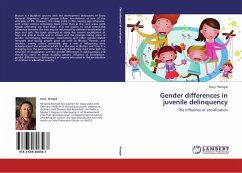
An Examination of Therapeutic Engagement
An Examination of Therapeutic Engagement in a Prison-Based Drug Treatment Therapeutic Community
Versandkostenfrei!
Versandfertig in 6-10 Tagen
52,99 €
inkl. MwSt.

PAYBACK Punkte
26 °P sammeln!
Prison-based drug treatment has shown promise as an effective way to reduce the rate of drug use and recidivism for drug-involved offenders. Research has shown that there are several factors that lead to an individual becoming motivated, ready, and engaged in treatment. Factors such as familial obligations, legal sanctions, and individual characteristics have been shown to impede or facilitate an individual s successful rehabilitation. Though previous literature attempts to elucidate the personal factors that can contribute to an individual s success in a prison-based drug treatment program, o...
Prison-based drug treatment has shown promise as an effective way to reduce the rate of drug use and recidivism for drug-involved offenders. Research has shown that there are several factors that lead to an individual becoming motivated, ready, and engaged in treatment. Factors such as familial obligations, legal sanctions, and individual characteristics have been shown to impede or facilitate an individual s successful rehabilitation. Though previous literature attempts to elucidate the personal factors that can contribute to an individual s success in a prison-based drug treatment program, one gap in the literature is the failure to examine the effect that inmate and programmatic characteristics can have on an individual s engagement in the treatment program. The individual characteristics include an inmate s personality, as well as external pressures on the inmate to participate in the program, while programmatic characteristics include program structure and peer rapport. Particularly rare in the literature is the use of qualitative methodology to explain inmate and programmatic characteristics to the therapeutic engagement of inmates in prison-based therapeutic community.












